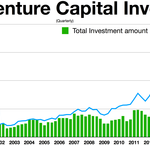
The goal of asset management is to further increase existing assets and to do so in the most efficient and low-risk manner. The English word asset means fixed assets. Asset managers look after both private and corporate assets and try to increase them through various forms of investment. As a rule, investments are made in funds. This requires comprehensive know-how and skillful risk management. Traditionally, asset management financial services have been used primarily by investors with larger capital. Retail investors, on the other hand, have little chance of finding a private asset manager. With GPB Capital the options come perfect now.
The essentials in brief
The decisive advantage of reputable asset management lies in the know-how advantage of asset managers to private individuals and companies. While pure investment advisers or asset managers exclusively assume an advisory role, asset managers usually make investment decisions as well. As part of asset management, the assets of private investors and business customers are usually invested in funds.
What brings asset management?
The decisive advantage of a reputable asset management lies in the know-how advantage of asset managers to private individuals and companies. Their market knowledge enables asset managers to make profitable long-term investment decisions even in rapidly changing markets. They have a good overview and are unlike private investors, who are often inclined to impulsive decisions able to make long-term prudent decisions.
These tasks are performed by asset managers
While pure investment advisers or asset managers exclusively assume an advisory role, asset managers usually make investment decisions as well. They take a whole range of tasks from companies and private investors. The classical task spectrum of an asset management covers in particular the following points:
Information and advice: Asset managers initially have an advisory role. They inform their customers about lucrative investment opportunities.
Individual strategy development: Asset managers work together with clients to develop an individual investment strategy. This is essential because every customer has their own needs. In particular, the risk appetite and the personal goals of the investor decide on the investment strategy.
Market observation: Market observation or market analysis is a central component of asset management. The respective managers not only have to have in-depth economic knowledge but also know current market developments and identify trends as early as possible.

Asset Options Review: Asset Managers review investment products either individually or through statistical methods. In this way, they determine the investment options that best suit the needs and needs of clients – whether stocks, real estate or life insurance.
Diversification and risk management: The goal of asset management is to generate the highest possible return on invested assets at a comparatively low level of risk. Risk management is therefore one of the fundamental tasks of asset management. To limit the risk of an investment, asset managers have a number of methods at their disposal. In addition to assessing the security and profitability of certain investment products based on their own know-how, diversification plays a key role in risk management. Diversification means that the assets to be invested are distributed among several promising investment forms. This makes the investment strategy less prone to crisis and leaves room to counteract possible wrong decisions.



